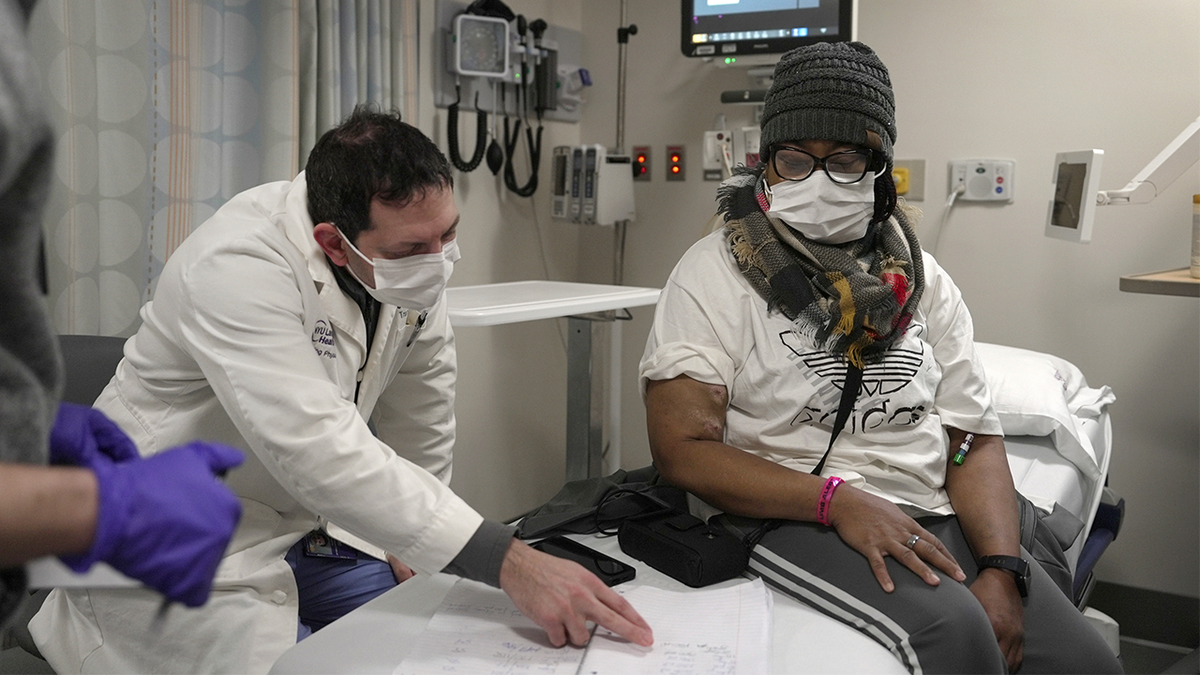Towana Looney, a 53-year-old from Alabama, has achieved a significant medical milestone, becoming the longest-surviving recipient of a functioning pig organ transplant. As of Saturday, her transplanted pig kidney has been functioning for 61 days, surpassing previous records and offering hope for the future of xenotransplantation.
Looney's journey began in November 2024 when she received the groundbreaking transplant at NYU Langone Health, led by Dr. Robert Montgomery. Her health has remained remarkably good, with her energy levels high and kidney function described as "absolutely normal." Looney expressed her excitement, telling the Associated Press, "I’m superwoman. It’s a new take on life."

Looney's case is particularly remarkable given the outcomes of previous attempts. While four other Americans have received similar transplants of genetically modified pig organs, none survived beyond two months. Dr. Montgomery noted that Looney's outward appearance belies the groundbreaking procedure she underwent, saying, "If you saw her on the street, you would have no idea that she’s the only person in the world walking around with a pig organ inside them that’s functioning."
The success of Looney's transplant offers a potential solution to the critical shortage of human organs available for transplant. Over 100,000 people in the U.S. are currently on the transplant waiting list, with the majority needing a kidney. Thousands die each year while waiting for a compatible organ. The FDA currently permits pig organ transplants only in exceptional cases, for patients who have exhausted all other options.

Looney's relatively good health prior to the transplant, compared to earlier recipients, is a key factor that may be contributing to her positive outcome, according to Dr. Tatsuo Kawai of Massachusetts General Hospital. Kawai, who led the world’s first pig kidney transplant, emphasized the importance of learning from each case. He noted that Looney’s progress will be invaluable for guiding future xenotransplantation efforts.
Looney's medical journey began with a selfless act – donating a kidney to her mother in 1999. Subsequent pregnancy complications led to high blood pressure, which damaged her remaining kidney. After eight years of dialysis, doctors determined she was unlikely to receive a human kidney transplant due to high antibody levels that would likely reject a human organ.
This led Looney to volunteer for the experimental pig organ transplant, despite the uncertainty of how her body, with its high antibody levels, would react. Montgomery’s team has closely monitored Looney’s recovery. Around three weeks post-transplant, they detected early signs of rejection, similar to those observed in a 2023 experiment where a pig kidney functioned for 61 days in a deceased donor's body. Fortunately, the team successfully treated Looney, and there have been no further signs of rejection.

While the long-term success of Looney's transplant remains unknown, her progress offers a beacon of hope for the future of organ transplantation. Montgomery acknowledged the unknowns, stating, "The truth is we don’t really know what the next hurdles are because this is the first time we’ve gotten this far. We’ll have to continue to really keep a close eye on her."
Comments(0)
Top Comments